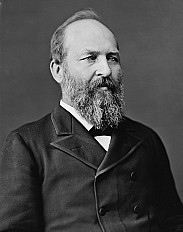
Day in the Life
Journal Entry
May 1. we rode to Logan with Br Lutz. Met at 10 oclock. George
Reynolds Prayed Joseph F Smith spoke 60 M, G Q Cannon
50 M. Both J F Smith & George Q Cannon bore a strong
testimony of the work of God and exhorted parents to set a
good Example before their children and teach them the
gospel Afternoon prayer By L Farr Sacrament Administered
The Authorities of the Church presented and sustained
B Young spoke 30 M John Taylor spoke 60 Minutes
At the close of the meeting drove to Hyde Park & held a
Meeting at 7 oclok W Woodruff Prayed. George Reynolds
spok 10 M[inutes], W. Woodruff 10 M, John Smith 3 M, G Q Cannon
34 M, Joseph F Smith 40 M John Taylor 10 M Rode
to Smithfield & spent the night 16 M[iles]
People
Browse people Wilford Woodruff mentioned on this day in his journal. Click on the person's name to view a short bio and other pages they are mentioned on or click on "View in Family Search" to view their FamilySearch profile.
Places
Browse places mentioned in Wilford Woodruff's journal entry on this day. Click on the place names to view other pages where they are mentioned.
Related Documents
Browse other documents with this same date. These could include pages from Wilford Woodruff's autobiographies, daybooks, letters, histories, and personal papers. Click on the document titles to view the full document.



Events
View selected events in the two months surrounding this date in Wilford Woodruff's life. Click on the dates to jump to that day in Wilford Woodruff's journal.


